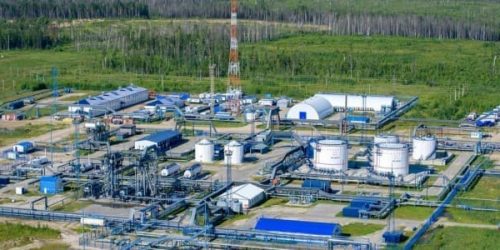Venezuela once considered one of Latin America’s prosperous countries has plunged into the abyss. Years of economic mismanagement, cronyism and corruption have sparked a monumental economic collapse which saw the oil rich country become one of the poorest in South America. There are emerging signs that Venezuela is on the verge of becoming a failed state. Oil plays a dominant role in Venezuela being responsible for almost all export income and a significant proportion of gross domestic product. The oil rich Latin American country’s once mighty petroleum industry, which long ago was responsible for producing a tenth the world’s oil, has virtually collapsed.
This has cast Venezuela’s economy into the abyss, triggering a crisis of immense proportions which has forced nearly five million Venezuelan’s to flee their homes for neighboring countries as they struggle to find a means to survive. It is also applying considerable pressure to the administration of socialist president Nicolàs Maduro and seen Caracas lose control of vast swathes of territory. Just over two decades ago, Venezuela’s Bolivarian Revolution commenced when Hugo Chavez won the 1998 presidential elections and was formally sworn into office in February 1999. He immediately introduced a new constitution focused on establishing a state-run economy, land reform, the redistribution of wealth and using the country’s vast oil wealth to fund extensive social programs. When Chavez took power Venezuela, which has the world’s largest oil reserves totaling 298 billion barrels, was one of the most prosperous countries in Latin America.
World Bank data shows for 1999 that Venezuela had real gross domestic product of $98 billion, ranking it fourth in Latin America behind Brazil, Mexico and Argentina. Venezuela was also one of the region’s wealthiest countries with GDP per capita of $4,127 placing it sixth. The oil rich country’s 1999 GDP per capita was significantly higher than many current regional economic powerhouses, being 19% greater than Brazil and almost double neighboring strife-torn Colombia.
Since then Venezuela’s economy has collapsed with it estimated that 2019 GDP was a mere $70 billion or 29% lower than it had been two decades earlier, yet Colombia’s GDP has almost quadrupled over that period to $324 billion. The outlook for the deeply impoverished country is austere. The IMF predicts Venezuela’s GDP will contract by 15% during 2020 and shrink another 5% in 2021. The key reasons for this rapid disintegration are the collapse of Venezuela’s economically vital petroleum industry, sharply lower oil prices and progressively more severe U.S. sanctions.
Oil is responsible for 25% of Venezuela’s GDP and according to OPEC accounts for 99% or almost all exports by value. It was in 2015 when Venezuela’s economically vital petroleum production started spiraling downwards.







